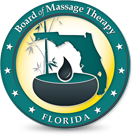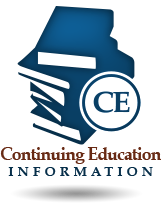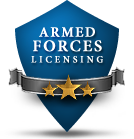Continuing Education Providers, Instructors and Courses
What is subject matter?
Subject matter is what is being taught to a student to achieve the learning objective.
For example, “research literacy” would be an appropriate subject matter for learner objectives such as “define research,” “discuss types of research,” or “explain the scientific method.”
“Massage Therapy Principles and Practice”, 4th Edition by Susan G. Salvo would be an appropriate citation for this subject matter.
What is a teaching method?
Teaching method is the way an instructor will convey the subject matter to a student to facilitate mastery of the learner objective.
Examples of teaching methods include lecturing, demonstration, collaboration, and discussion.
Resources used to present subject matter may be indicated to clarify teaching method but do not stand alone as teaching methods. For example:
| Sample Resource | Sample Teaching Method |
| “How to cite sources” slides | Lecture – How to cite sources (slides) |
| “Sample citations” handout | Demonstration – Constructing a proper citation (handout – sample citations)
|
| “Citing YouTube” video | Discussion – What are some challenges with using internet-based references? (video – “How to Cite Your YouTube Video.”) |
What are principles of adult education?
Principles of adult education are learning theories and teaching concepts which specifically address the ways adults are motivated to learn and are most effectively taught.
These principles may include specific methodologies or approaches (e.g. “project-based learning,” or “self-directed learning”), or may be demonstrated by integrating specific concepts (e.g. teaching methods and subject matter that address how the learning will help the learner, or construction of learner objectives that are task-oriented).
What are learning styles?
Learning styles are differences in how students learn. While differing theories organize learning styles into different categories, most education theories agree that instruction using varied learning styles increases the likelihood of successful outcomes for students.
The most familiar terms for learning styles are derived from a theory centered on assessment of the learner’s preferred mode or modes of engagement (e.g. physical or kinesthetic learner, auditory learner, social learner, visual learner).
More recent education theory centers learning style around higher order factors (e.g. cognitive style, perceptual response, study preferences, instructional preferences).
What is a learner objective?
Learner objectives are what the student will be able to do once the course is finished. They describe student behaviors, and must be specific, attainable and measurable.
Some examples of student behaviors include define, name, discuss, explain, distinguish, reconstruct, identify, state, contrast and compare, list, point out, outline, apply, write, perform, debate, research.
Learn and know are not examples of adequate learner objectives, as they are not directly observable or measurable.
What is an evaluation?
An evaluation measures the success of the student in mastering learner objectives.
While the most common form of evaluation is a test, other forms of evaluation may be used to measure mastery, so long as the method of evaluation is appropriate for the learner objective.






